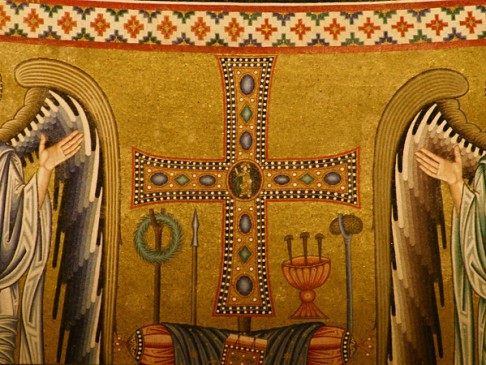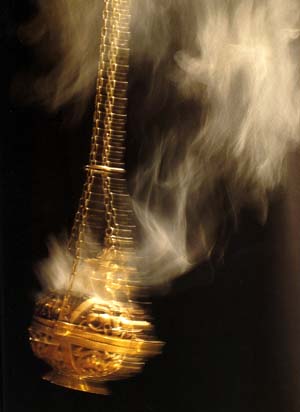As I was driving home from a birth on Christmas Eve, I reflected on the acute time of struggle that my family was in with the thought that this Christmas did not seem “Merry”. The trials of life sometimes come as rivulets, uncaring what time of year or season they are flowing through with their cares and concerns winding through the small places of our lives and hearts. Christmas came with weariness this year. I was sapped from being in and out of hospitals with my infant son and my elderly father with serious respiratory complications after having the flu sweep through our whole family. Juggling a hardware store, midwifery business, and care-taking a family of 10 (including my parents), life was brimming-to-overflowing. How was I to feel about a Christmas that didn’t feel Merry looking towards a New Year that may or may not be Happy?
This moment of driving on Christmas eve offered me a pause and I realized that Christ was Incarnate into this world, the one filled with struggle and hardship. I was poignantly aware of the darkness both around and within and frightened by the sight, saw also that perhaps in this present awareness I could also see Christ more clearly rather than less. The reality of the Incarnation piercing the darkness of a cave with the Divine Light as so many Incarnation icons depict – I could resonate with that more this year than ever before.
The tribulations in the universe, world, country, state, community, family, and mine own heart are so very many – enough to drown and confuse and overwhelm. “….but I have overcome the world.” (John 16:33) This Christ-child, God-become-Man, entered into the tribulation and the darkness could not contain Him for He pierced it with Himself, the true Light.
Since writing the above, my 8 month-old son was hospitalized again, this time with RSV. After his need exceeded what our local hospital could provide, they transported him to Reno where he was admitted to the pediatric ICU for a week. I have had more time than usual to pray and think about the presence of God in seasons of trial. I listened to the words of the Psalms, so many of which are crying out for God’s mercy and attention and often in moments of desperation and great need, as reflected in Psalm 76 (77):
1 With my voice unto the Lord have I cried, with my voice unto God,
and He was attentive unto me.
2 In the day of mine affliction I sought out God,
with my hands upraised by night before Him, and I was not deceived.
7 Will the Lord then cast me off unto the ages,
and will He be favourable no more?
8 Or will He cut off His mercy unto the end?
Hath He brought to an end His word from generation to generation?
9 Or will the Lord forget to be merciful?
Or in His wrath will He shut up His compassions for ever?
11 I remembered the works of the Lord;
for I will remember Thy wonders from the beginning.
12 And I will meditate on all Thy works, and I shall ponder upon Thy ways.
13 O God, in the sanctuary is Thy way. What God is as great as our God?
Thou art God Who workest wonders.
So often through the Psalms to we hear the cry for God to incline His ear and the fear of being forgotten or being “cast off” in days of affliction. At this moment, I can see with clarity how the affliction prods us to seek out God, to throw ourselves upon His feet as the unclean woman, seeking His healing touch. For in our weakness, vulnerability, pain, and laden by the burdens which assail us, we come to the end of ourselves and our ability. In times like this, we can see our utter dependance on the mercy of Christ without the scales and passions that so often blind us to this reality. Our every breath and utterance is of God, given by Him in the right here and now. This eternal truth pierces our temporal being more deeply when we find ourselves helpless.
The resounding truth throughout Scripture, the life of Christ, the Church, and the lives of the Saints would teach us that the narrow path, the ladder of divine ascent, the journey towards Theosis are not traveled with ease and temporal comforts. Rather, they are received through suffering and finding God’s mercy and grace in the humbling place where we must look up to see the Light that shines in darkness, He Who has overcome the world.
“Master and Lord, do not allow any temptation or sorrow or sickness which is beyond my strength to come upon me, but rather deliver me from them, or else grant me the might to bear them with thanksgiving.” (St. Simeon the New Theologian)



